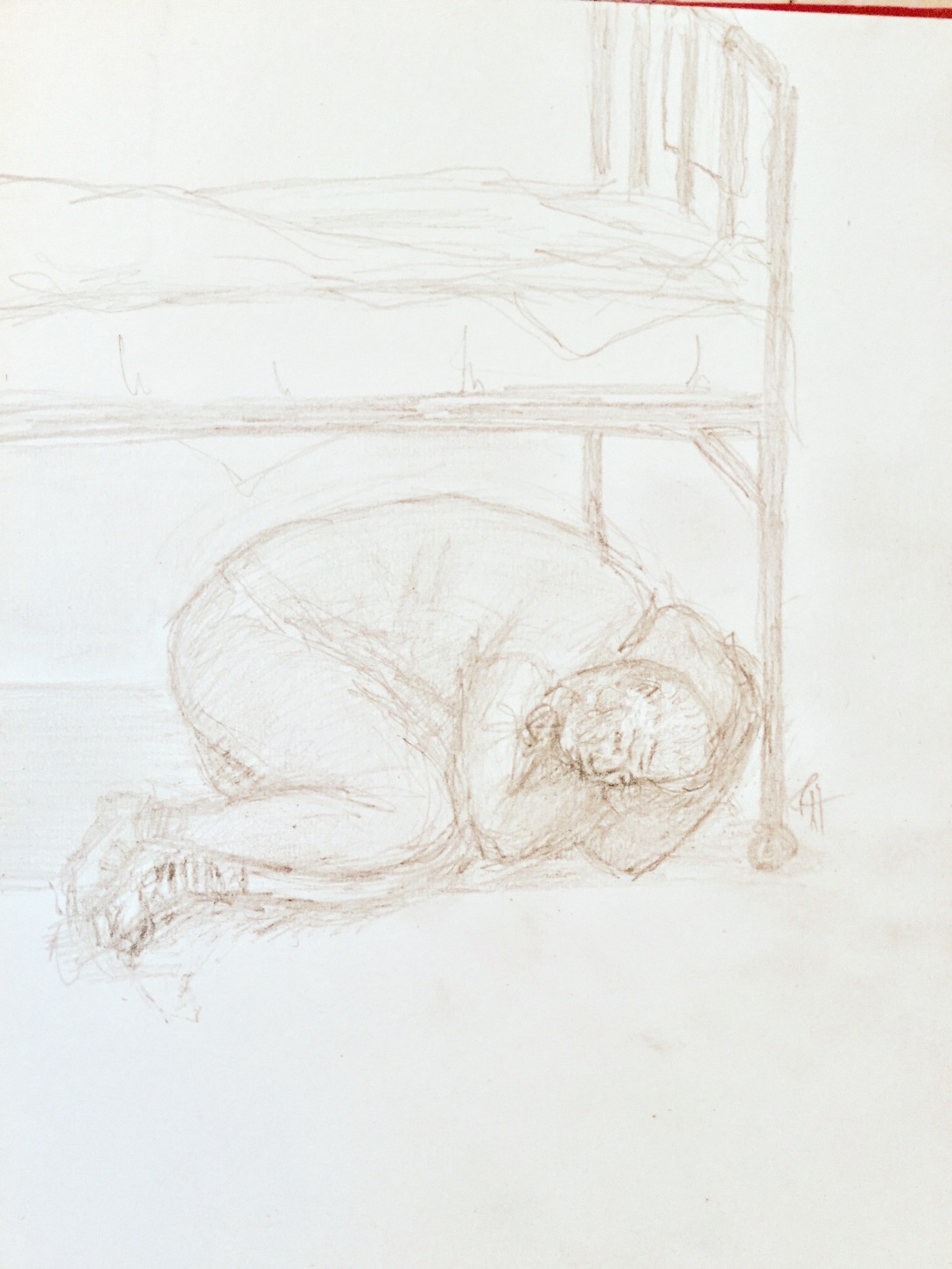I posted the short story Rats a little while back, and now I’d like to share some of the “behind the scenes” stuff behind it. My motivation for doing this is because I find it interesting, and so maybe you will too, and maybe we can inspire each other.
Rats is a short story responding to the prompt “you are the victim of injustice” on TheProse.com, where I originally posted the story. Not for the first time, I was inspired by the amazing Kazuo Ishiguro, and specifially, by the notion of approaching the concept an alternative world a little bit differently.
So that was the first impulse, or piece of inspiration, if you like.
The second was a video I’ve seen where the experience of a refugee child is portrayed using a white child actress, thereby brilliantly confronting the idea of “us” and “them”, forcing Westerners to take in a) that all humans are alike, and b) that it could so easily have been us. The world could have looked different. Indeed, the world might look different in the future.
This idea fascinated me. It may not surprise you to hear that I support the statement “Art should disturb the comfortable and comfort the disturbed.”
And so I decided to go with the idea that the East grows to become the new super power, whereas the West diminishes and becomes poor, factories now being built in the West just like right now, they are in the East, because that’s where cheap labour is.
There is also a historical reference within Rats, namely the factory collapse in Savar, Bangladesh in 2013. I have visited Bangladesh once, and met the people there, and I have Bangla friends. They might as well have been Westerners, in some senses, but they live in a country which is extremely poor, which has an incredibly corrupt government, and which is exploited by international organizations. A large number of people lost their lives or were fatally wounded in that building collapse. But who talks about it now? And though “conscious fashion” is a growing trend I wholeheartedly support, it remains true that most people go shopping without it even crossing their minds who made these clothes, and whether they were exploited, or what we can do to better their working conditions and pay.
I am by no means a very structured writer who has a strict plan and writes from the beginning to the end making no detours. Indeed, I am a very messy writer who constantly shuffles things about and tweaks them, thinking of stories as pieces of clay that I can mould into whatever shape I like. What I’ve been talking about before, then, is not so much the short story itself, but the impulses behind the idea. In summary: they are these three:
- The idea of approaching an alternative world differently
- The refugee child video campaign challenging the “them/us” idea
- The factory collpase in Bangladesh i 2013
Now we get to the short story, about which I don’t have that much to say. I wrote it quickly – those of you who are writers will know that some stories seem to write themselves.
The factory collapse in Rats happen right by the Thames in London, which was my attempt at turning things on their head, enganging with the idea “them” and “us”, by actually swapping the geographical locations and cultures that provided the setting for the factory collapse. But I didn’t want to linger on this for too long. Inspired by Ishiguro, I wanted the world of the story to simply be, and to focus on what was happening with my characters and in their lives – as they experienced it, not as you or I would.
The protagonist is a regular woman, in most ways. A Londoner recognizable in some ways, but whose world is in many aspects strikingly different from the way we know it. When catastrophe happens, she becames the newspaper cover girl, the face of the disaster, who has to deal with exactly the same problems as we do, in the real world, except from an opposite point of view.
She wants and desires change, but history’s message is not encouraging, and she fears that the Westerner’s roles as “rats” will mean that the disaster will soon be forgotten in the East. But in the woman’s own life, the disaster will in all probability cripple the entire family, because the media and the wealthy people of the world, only care for as long as their attention span lasts.
I wonder if some people might accuse me of writing for the sake of a “moral message”. Actually, I don’t, certainly not on purpose. I think my inclination is to attempt to get people to think more, and to step out of their own shoes and into somebody else’s.
